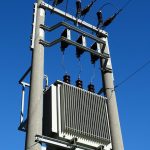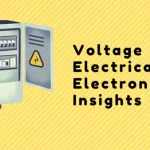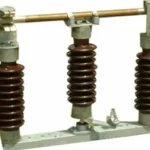Electrical Cable: Types, Electrical Standards & Proper Sizing
Electrical Cable is essential components in both electrical and data communication systems, serving as the conductors through which current or data flows. They come...
Construction of Transformer: Structure, and Components
The construction of a transformer is key to its function in electrical systems, enabling the transfer of electrical power between circuits through electromagnetic induction....
Electric Power Transmission and Distribution System
The electric power transmission and distribution system is essential for delivering electricity from power stations to consumers. This complex network ensures that power generated...
What is Smart Grid Technology: Features and Benefits
Smart grids represent the future of efficient and sustainable energy management. By integrating advanced technologies like SCADA, IoT, and machine learning, smart grids can...
Auto Transformer: Structure and Working Principle
Auto Transformer differs slightly in structure compared to regular transformers. Understanding these differences is essential. In this article, we will explore the structure and...
Electrical Isolator: Function, Types, and Importance
An Electrical Isolator, also known as a disconnector, is a manual mechanical switch used to disconnect electrical equipment from the power system. Unlike circuit...
Primary Sources of Electrical Energy and Their Applications
Primary sources of electrical energy are the backbone of modern civilization, powering industries, homes, and essential services. These sources, ranging from conventional methods such...
Types of Fuse and Their Characteristics
Types of fuses are essential components in electrical systems, designed to protect circuits and connected loads from damage while ensuring safety. Fuse play a...
Electrical Transformer Testing Methods and Standards
Electrical Transformer testing is a crucial aspect of ensuring the reliability, efficiency, and safety of power systems. These tests validate the operational integrity of...
What is a turbine? Types, Functions & Applications
What is a turbine: Turbines are critical machines used in various industries to convert kinetic, potential, and thermal energy into mechanical energy. From powering...
What is Fuses: Functions and Key Points
A fuse is an essential electrical safety device designed to protect circuits from excessive current flow. By using a thin, low-melting-point conductor, a fuse...
Synchronous Motor: Definition, Components, and Working Principles
Synchronous motors play a critical role in various industrial and mechanical applications. Unlike other motors, they operate at a constant speed from no load...







